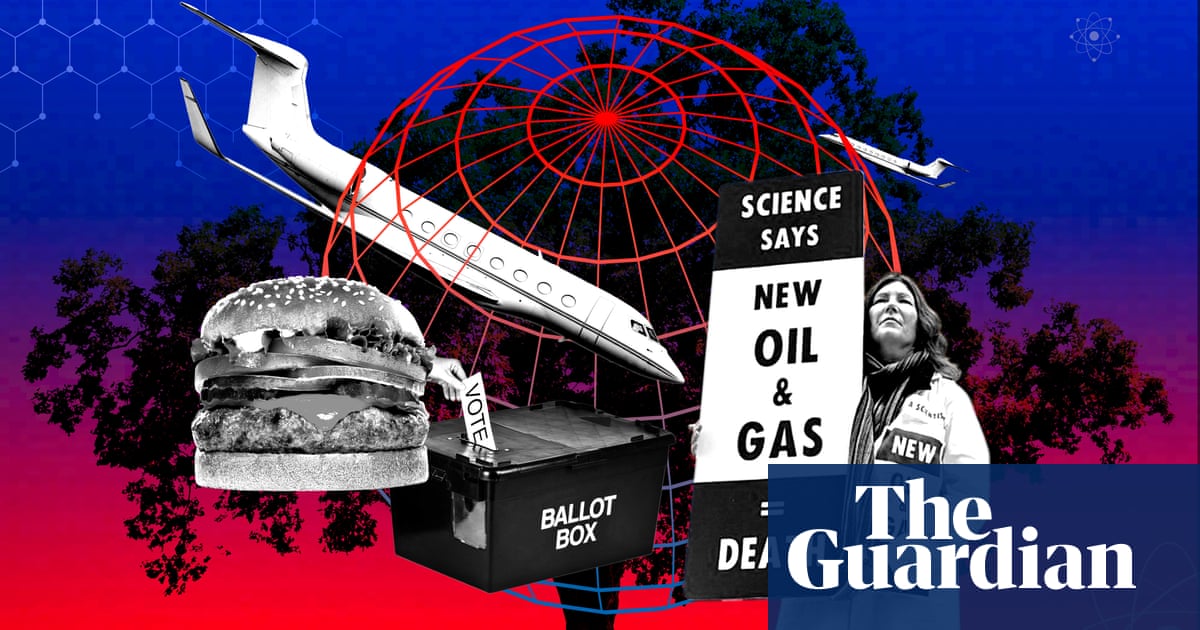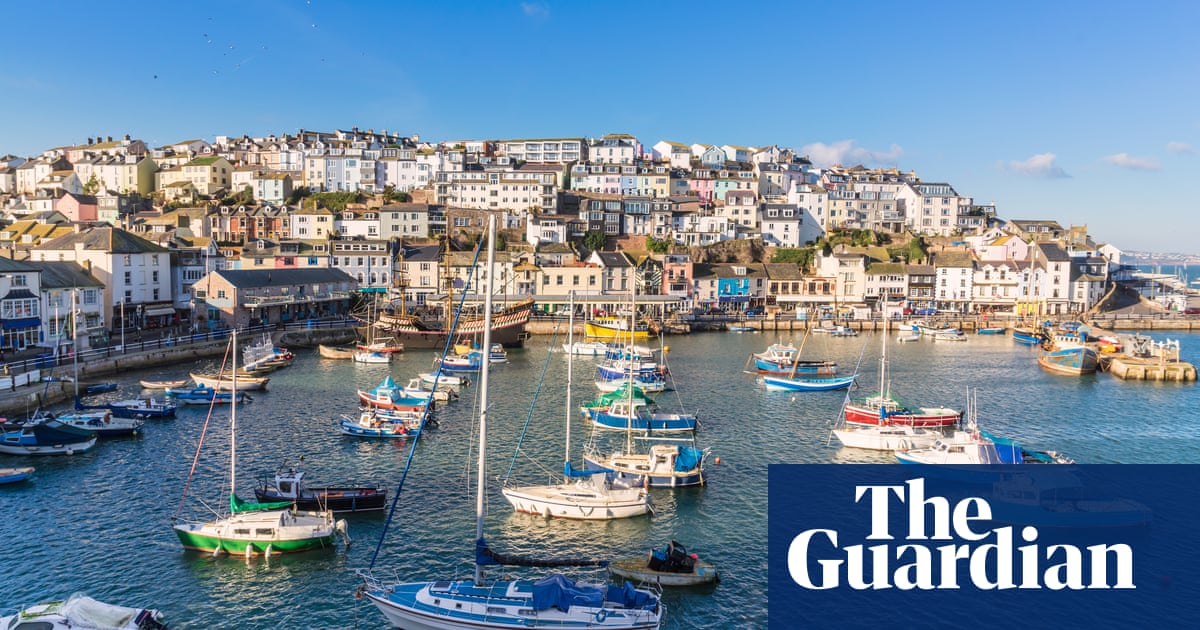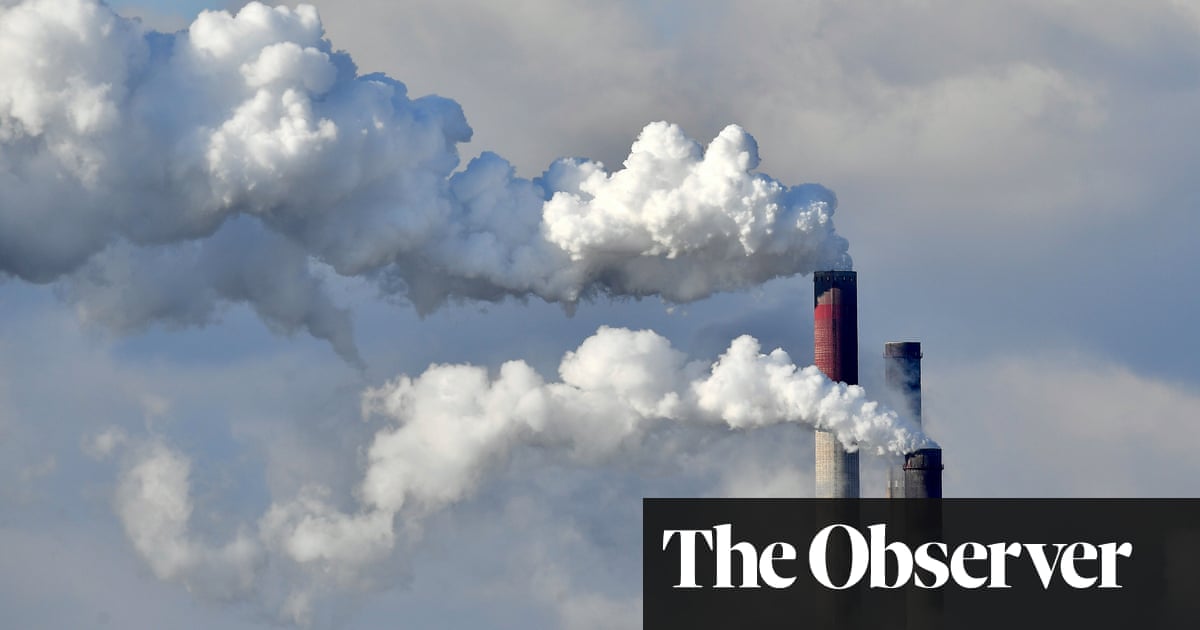Many people, faced with the worsening impacts of the climate emergency, want to know what they can do personally to fight global heating. The Guardian asked hundreds of the world’s top climate scientists for their views.
What is the most effective action individuals can take?
Most experts (76%) backed voting for politicians who pledge strong climate measures, where fair elections take place. The recommendation is powerful in a year when voters in countries including the US, UK, India, the EU, Mexico and South Africa and more all go to the polls.
“I feel the reason behind the lack of response to date is the nervousness of politicians,” said Prof Bill Collins, at the University of Reading in the UK. “Polls suggest voters are actually more willing for governments to take stronger climate action.” Another expert highlighted the danger of a second Donald Trump presidency to climate action.
The survey sought the view of every contactable lead author and review editor of reports by the Intergovernmental Panel on Climate Change since 2018, with 380 of 843 responding. Overall the scientists were extremely pessimistic about the prospects of holding global temperature rises below internationally agreed targets.
“The science is there, but the lack of will of politicians worldwide is retarding climate change [action],” said Prof Alexander Milner, at the University of Birmingham in the UK.
What about reducing flying?
The second choice for most effective individual action, according to the experts, was reducing flying and fossil-fuel powered transport in favour of electric and public transport. This was backed by 56%, and two-thirds said they had cut their own number of flights.
Flying is the most polluting activity an individual can undertake and makes up a large part of the carbon footprint of the rich. Globally it is a small minority of people who drive aviation emissions, with only about one in 10 flying at all. Frequent-flying “super emitters” who represent just 1% of the world’s population cause half of aviation’s carbon emissions, with US air passengers having by far the biggest carbon footprint among rich countries.
Can eating less meat help?
Meat production has a huge impact on the environment. Most people in wealthy countries already eat more meat than is healthy for them and more than 60% of the scientists said they had cut their own meat consumption. Almost 30% of the experts said eating less meat was the most effective climate action, while a similar proportion backed cutting emissions from heating or cooling homes, by installing heat pumps, for example.
Is protesting an effective form of climate action?
Almost a quarter of the scientists said they had participated in climate protests, as citizens who are deeply worried about global heating. This included scientists from every continent, including those from the US, Argentina, Germany, Bangladesh, Kenya and Australia.
What else?
Having fewer children was backed by 12% of the experts but many made further suggestions. Everyone should “talk about climate as the leading existential threat to societal stability”, said one. Shifting savings or pension funds away from fossil fuel investments and towards green ones was also mentioned by multiple experts.
Prof Vanesa Castán Broto, at the University of Sheffield in the UK, suggested a blunt action for one particular group: “Stop working for the fossil fuel industry.” And a scientist from Cameroon advocated avoiding products responsible for deforestation, such as some beef, timber and cocoa.
Can individual action really help?
Many of the experts were clear on the limits. “It can only go so far. Deep, rapid cuts in carbon emissions from oil and gas, as well as other sectors such as transport, are needed, which are outside the control of the average individual,” said Dr Shobha Maharaj, a climate impacts scientist from Trinidad and Tobago.
“Individual action can only amount to a drop in the bucket – only systemic changes will be sufficient,” said Prof David Wrathall, at Oregon State University in the US. But Prof Hiroyuki Enomoto, at Japan’s National Institute of Polar Research, said that while individual actions have a small impact, they are important in increasing collective awareness of the problem.
Are the scientists walking the talk themselves?
Yes. Many foresee catastrophic levels of global heating and are shifting their focus away from the physics of the climate system towards action that slows global heating and work that protects people against the climate impacts they now see as unstoppable.
“I work more on projects with vulnerable communities so they improve their adaptation to climate change, whose impacts we already experience and which will increase in the future,” said Prof Carolina Vera at the University of Buenos Aires in Argentina.
Numerous scientists said they had given their time as expert witnesses in legal cases on climate change and others said they were helping groups to develop new climate policies.
Maharaj now chooses to spend at least half her time turning science into action, as the science director of a company implementing responsible reforestation. “There are so many people on the ground who care and who want to make a difference; that is truly encouraging and really drives me,” she said.



